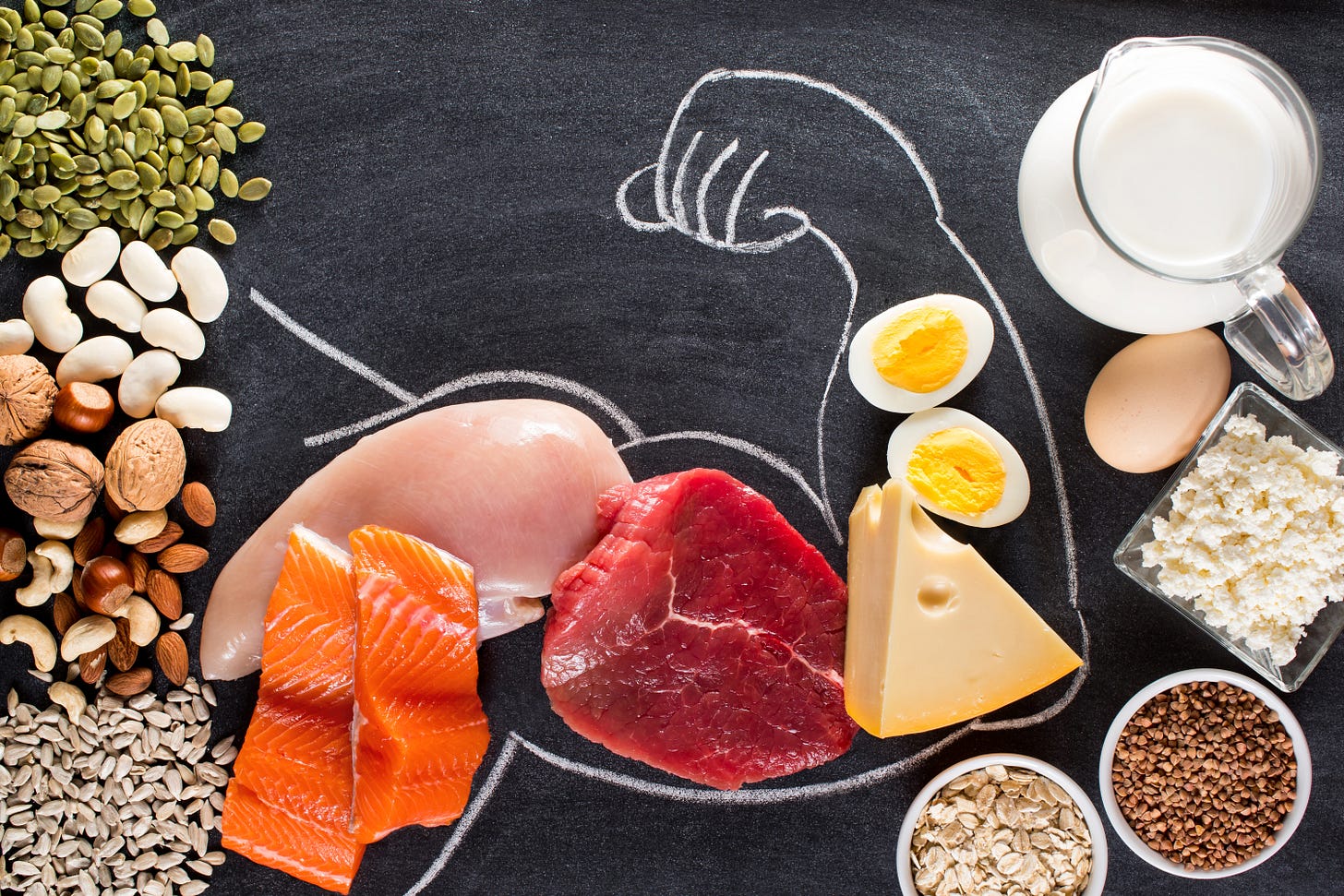Unlocking True Metabolic Reset: Why High Protein and Natural Fats Trump Carbs
Avoid the Seed Oil Trap
Your Diet Should Not Be Your Enemy!
Do you find yourself struggling to maintain your ideal weight, or have you just given up and feel there is nothing you can do about it? A diet should not be your enemy; it should be a sustainable path to hormone balance, energy optimization, and cellular health. I have found a diet founded on scientific principles, which emphasizes real food, no crash diets, and smart supplementation to reset your body at its core.
But today, I want to zoom in on a key shift I'm passionate about emphasizing: prioritizing “high protein and natural fats” over an obsessive low-carbohydrate focus. Don't get me wrong—curbing refined carbs and sugars is crucial (more on that later). However, the real game-changer for lasting results? Building meals around quality proteins and stable, natural fats while ditching the hidden toxins in manufactured seed oils. This isn't about restriction; it's about fueling your body with what it truly needs to thrive.
In this post, I'll break down why this strategy works, backed by insights from nutrition heavyweights like Catherine Shanahan, Nina Teicholz, and Robert Lustig. We'll explore the science, bust some myths, and give you practical tips to implement this in your “Personalized Wellness Program”. If you're tired of yo-yo dieting and ready for a reset that sticks, let's dive in.
The Power of High Protein: Building Blocks for a Resilient Body
Protein isn't just for bodybuilders—it's the cornerstone of metabolic health, hormone regulation, and sustained energy. High-protein diets support muscle maintenance, boost satiety (so you're not constantly hungry), and enhance fat loss without the muscle-wasting pitfalls of extreme calorie cuts.
Research shows that higher protein intake, especially when paired with fats, outperforms high-carb or even high-fiber approaches for weight management and blood pressure reduction. In one study, participants on a realistic high-protein plan lost more fat and improved cardiovascular markers compared to high-carb counterparts. Why? Protein stabilizes blood sugar, reduces inflammation, and supports detoxification pathways overloaded by modern toxins.
In our Personalized Wellness Program (PWP), we aim for approximately one gram of protein per pound of body weight desired daily (155lb = ~155g per day)—from sources like grass-fed beef, wild-caught fish, eggs, and dairy. This isn't about bland chicken breasts; think flavorful meals like salmon with avocado or steak stir-fries. High protein keeps you full, powers workouts, and aligns with our 80/20 rule: 80% nutrient-dense foods, 20% flexibility. We are human after all!
But protein alone isn't enough. To amplify its benefits, we pair it with...
Natural Fats: The Unsung Heroes (And Why Seed Oils Are Sabotaging Your Progress)
Fats got a bad rap for decades, but the tide is turning. Natural fats—from butter, tallow, olive oil, avocados, and nuts—provide steady energy, support hormone production, and reduce inflammation. They're stable, satiating, and essential for absorbing vitamins.
Contrast that with manufactured seed oils (like canola, soybean, corn, and sunflower), which are loaded with linoleic acid in its processed, unstable form. These "vegetable" oils aren't veggies at all—they're industrial byproducts refined at high heat, creating oxidative damage that builds toxic load in your body. Dr. Catherine Shanahan, in her work like Dark Calories, explains how these oils disrupt mitochondrial function, leading to insulin resistance, weight gain, and even sugar cravings. She clarifies it's not linoleic acid in whole foods (like nuts) that's the issue, but the oxidized versions in seed oils that turn body fat toxic.
Nina Teicholz echoes this in The Big Fat Surprise, tracing how seed oils became "heart-healthy" myths despite evidence of their inflammatory omega-6 overload and cancer links in studies. Replacing them with natural fats like beef tallow or coconut oil reduces risk factors for heart disease and diabetes.
With PWP, emphasizing natural fats means cooking with ghee or olive oil, snacking on cheese, and avoiding processed foods laced with seed oils. This strategy lightens toxic load, improves energy, and makes dieting feel effortless.
Over Low-Carb: Why Carbs Aren't the Enemy (But Sugar Is)
A personalized wellness program isn't keto-strict; it's flexible. While we limit processed carbs to avoid blood sugar spikes, we don't demonize all carbs. Veggies, fruits, and whole grains in moderation provide fiber for gut health and detox.
The real villain? Added sugars, as Dr. Robert Lustig warns in Metabolical. Sugar acts like a metabolic poison, overloading the liver and driving fat storage—far worse than natural fats. By focusing on high protein and fats, we naturally crowd out excess carbs without deprivation, improving insulin sensitivity and metabolic health.
This balance prevents the fatigue of ultra-low-carb diets while delivering results: better mood, hormone reset, and sustainable weight loss.
Implementing This in Your Personalized Wellness Journey
Ready to try? Here's a simple framework:
1. Audit Your Kitchen: Swap seed oils for butter, coconut oil, or avocado oil. Check labels—seed oils hide in everything from salad dressings to snacks.
2. Meal Build: Start with protein, add natural fats (e.g., drizzle olive oil), and fill with veggies. Example: Eggs with spinach and feta for breakfast.
3. Supplements Support: Unfortunately, our food system has been compromised (a future post!), and supplementation is advised to ensure you meet your nutritional needs. Part of our personalized system is a free online health assessment to identify potential shortfalls.
4. Track Progress: Beyond the scale, note energy levels and cravings. Many clients report clearer skin and better sleep within weeks.
Final Thoughts: Reset for Life
By prioritizing high protein and natural fats while eliminating seed oil-derived linoleic acid toxins, your personalized diet becomes more than a program—it's a lifestyle that empowers your body to heal. Drawing from Shanahan's oxidation warnings, Teicholz's historical critique, and Lustig's sugar focus, this approach cuts through the noise for real, science-backed results.
If this resonates, please feel free to leave a comment. We want to encourage you to join our community or request a coaching session.
What's one change you'll make this week? Drop a comment—I'd love to hear!


